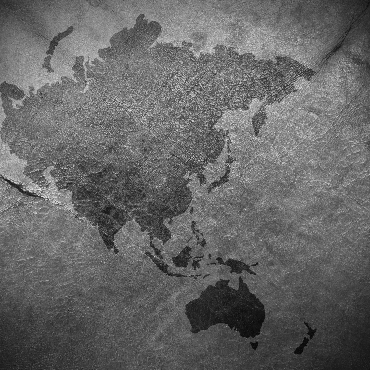SOUTH KOREA MARTIAL LAW DEBACLE LEAVES U.S. REGIONAL PRIORITIES IN DOUBT
In the opening days of December, South Korean President Yoon Suk-yeol shocked the world, his nation, and members of his own government when he suddenly declared a state of martial law. Reportedly motivated by parliamentary gridlock and fear for his own political future, Yoon sought to preempt his political opposition. The martial law did not last long, as members of parliament overwhelmingly voted to lift it hours after its enactment. Since then, Yoon's presidential powers have been stripped and he has been impeached. The opposition Democratic Party, which appears set to retake power after the next election, will present strategic challenges for Washington, as its foreign policy is more conciliatory to North Korea and less hawkish on countering the PRC. (NBC News, December 16, 2024)
SIGNS OF A THAW BETWEEN WASHINGTON AND PHNOM PENH
For the first time in eight years, a U.S. warship has docked in Cambodia. In mid-December, the USS Savannah, a Littoral Combat Ship, visited the port of Sihanoukville for five days. The port call follows Secretary of Defense Lloyd Austin's recent visit to Phnom Penh and may suggest warming relations between the United States and Cambodia, a development officials in Cambodia would welcome. Both the Biden administration and the incoming Trump administration, however, remained concerned about the possibility of the People's Republic of China (PRC) establishing a permanent military presence at Ream Naval Base, something Beijing and Phnom Penh have both denied. (CBS News, December 16, 2024)
THAILAND HAS IT BOTH WAYS ON SPACE EXPLORATION
As geopolitical tensions between Washington and Beijing continue to grow, few domains are as pivotal for wartime planning and peacetime exploration as space. Both the United States and the PRC have sought to define rules of the road for space exploration, particularly with regard to lunar research. The U.S.-led Artemis Accords and the PRC-led International Lunar Research Station (ILRS) are different but competing constructs for lunar exploration. Up to now, no nation had joined both. Thailand, however, has bucked this trend and signed on to the Artemis Accords in mid-December, eight months after joining ILRS. Bangkok, like all Southeast Asian capitals, is wary of total alignment on key matters with either Washington or Beijing, and is testing the workability of cooperating with both great powers on space exploration. (Space News, December 17, 2024)
NORTH KOREAN SOLDIERS CONFIRMED DEAD IN UKRAINE
No one knows with certainty how many soldiers from the Democratic People's Republic of Korea (DPRK) are fighting for Russia in Ukraine. Estimates range from 11,000 to 100,000 troops. What is known, however, is that North Koreans are beginning to die in the war. According to a December 17th report from the Associated Press, the DPRK has sustained "a couple hundred" fatalities. A BBC report, meanwhile, references Ukrainian and South Korean intelligence assessments that indicate many of the troops Pyongyang sent to help Russia come from the 11th Corps, North Korea's military unit trained in infiltration, assassinations, and sabotage. In addition to warfighting experience, Pyongyang could also be leveraging its elite unit to access Russian technology that would otherwise be protected. (Associated Press, December 17, 2024)
PACIFIC ISLAND NATIONS TENTATIVELY OPEN PROTECTED SEABEDS
Pacific Island Countries (PICs) are facing a shared conundrum: leveraging untapped economic potential in their seabeds without disrupting the broader marine ecosystems. The Cook Islands, for instance, have deposits of cobalt, copper, and nickel in a protected marine park. While authorities have not yet permitted mining there, they have granted multiple exploration licenses to map the seabed and assess the possibilities. Palau is also redesigning its marine sanctuary to permit fishing.
Compounding this challenge is economic pressure from Beijing, which has leveraged tourism to punish the vulnerable economies of PICs like Palau for extending diplomatic recognition to Taiwan. Rather than bend to the PRC's will, Palau is maneuvering to attract high-brow tourists from Japan and South Korea. (Nikkei, December 1, 2024; Guardian, December 11, 2024)
Want these sent to your inbox?
Subscribe
Indo-Pacific Monitor No. 41
Related Categories:
Democracy and Governance; Terrorism; Resource Security; SPACE; China; Japan; North Korea; Russia; South Korea; Southeast Asia; Cambodia; Thailand; Ukraine; United States
